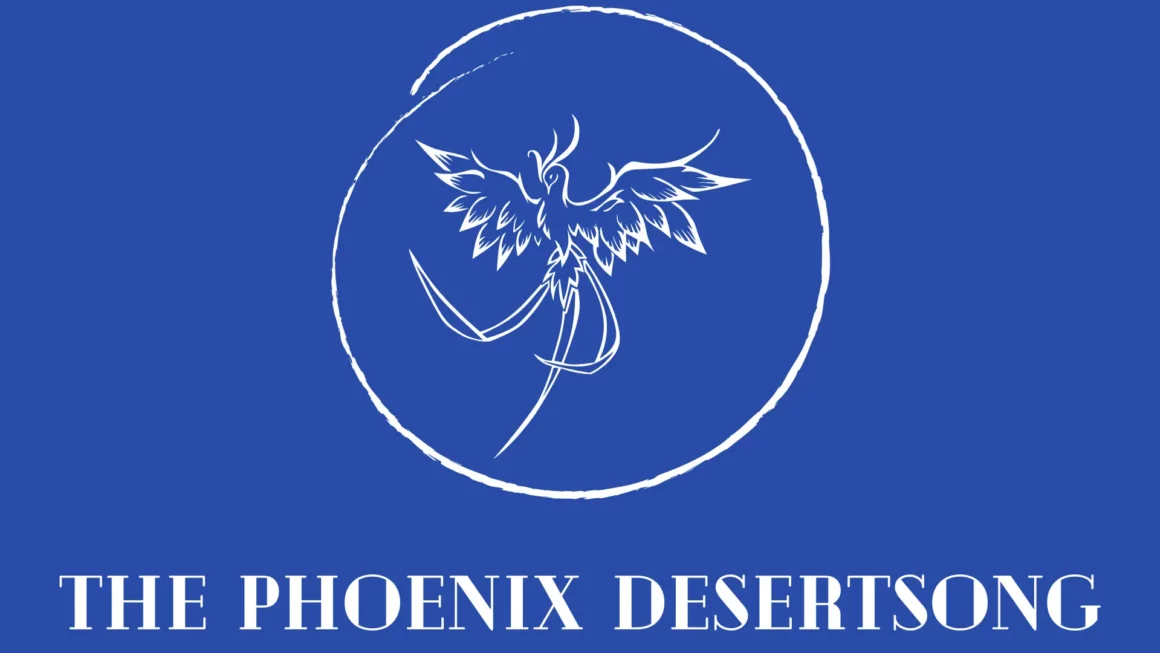At the end of each year, I evaluate my growth as a writer. I have an unquenchable desire to refine my craft, to make my words flow with more grace, and to articulate my thoughts with clarity and purpose. The rhythm and meter of prose have become like vital bodily functions. Yet, I still stumble upon the roadblocks of verbosity, my thoughts tangled in the weeds of overly elaborate sentences.
Despite whatever progress I’ve made over the previous fifty-two weeks, there’s always room for growth. My prose once suffocated under an excessive number of words, but with considerable practice, it has become more concise and efficiently expressed. Still, I can always improve. Each December, I wonder: will my prose age as gracefully as vintage liquor? Will it develop the complexity and depth that only time and experience can bestow? These musings guide my digital pen as I embark on another year of writing, ever hopeful that my words will one day mature into something truly timeless.
The Evolution of My Prose
My journey as a writer began with a constant excess of words, a veritable flood of verbosity that threatened to drown any semblance of clarity or purpose. In those early days, my prose was like an overgrown garden — beautiful in its wild, unchecked growth, but ultimately suffocating the very ideas it sought to express. Each sentence was a winding path, every paragraph a dense thicket of thoughts, and navigating them was often more laborious than rewarding.
With time and patience, I continue pruning my sentences, trimming away unnecessary flourishes and baroque constructions that once seemed so essential. What remains is a more streamlined, efficient expression of my thoughts — still vibrant and lush, but now with clearer direction. These roadblocks of verbosity gave way to smoother pathways on which ideas could flow more freely and naturally.
This evolution isn’t without challenges, though. Conciseness doesn’t come naturally to me, due to my tendency toward the elaborate. I learned to wield my pen like a sculptor’s chisel, carving away the excess to reveal the true form beneath. Each word must earn its place, each sentence justifying its existence. The process is painstaking, but the results are undeniable — developing a prose style that’s not only more readable but also more impactful.
Despite these strides, I am acutely aware that the journey is far from over. The pursuit of refinement is a never-ending endeavor, one that requires constant vigilance. My prose may have shed its initial bulk, but it still carries the potential for further growth and improvement. Each piece I write is another opportunity to push the boundaries of what I can achieve with words.
On this quest for betterment, I’ve come to see my writing as a living entity — one that evolves and adapts with each passing year. It breathes, it grows, and, like vintage liquor, it has the potential to mature into something far greater than its humble beginnings. The challenge lies in nurturing this growth, in guiding my prose towards a future where it can stand the test of time and, perhaps, even age with grace and complexity.
The Art of Tinkering
My prose’s evolution involves a constant process of tinkering, chasing perfection while bordering on obsession. I find myself endlessly tweaking, adjusting, and refining, seeking that elusive harmony where words flow like a symphony. This tinkering stems from a deep-seated desire to create a writing style that transcends the mundane.
I want my prose to flow like free verse poetry, to possess a rhythm and cadence that draws readers in and holds their attention. The challenge is achieving this without sacrificing meaning or coherence. I strive to infuse my writing with a vibrancy and energy that elevates it beyond the bland, stale tone of professional copy. Who, after all, wants to read yet another monotonous article or essay, written for calls-to-action and search engine algorithms? My goal is to create prose that breathes life into the hearts and minds of my readers.
I often experiment with different forms and structures, pushing the boundaries of conventional writing. I play with sentence length, rhythm, and pacing, seeking new ways to capture the reader’s imagination. It’s a process of trial and error. But each failure is a lesson, each misstep an opportunity. Tinkering isn’t just about improving the mechanics of writing. I work to imbue my prose with personality and character. My words should reflect my unique voice and perspective, to carry the weight of my unique experiences and insights.
My ultimate goal is to create a sense of movement and energy in my writing. Like a skilled Parkour Traceur, I aim to glide between syllables, twirl around punctuation, and leap across paragraphs with grace and precision. This requires a keen sense of timing and an intuitive understanding of the interplay between words and ideas. Ultimately, my tinkering must be tempered by knowing when to push the boundaries and when to rein in my creative impulses. True perfection is an unattainable ideal, after all.
Teaching and Learning Through Writing
As I’ve grown as a writer, I find myself both a teacher and a student. I not only seek to convey meaning to my readers but also to deepen my own understanding of the intricacies of language. Writing is a dialogue between myself and the page, an ongoing conversation where I explore and discover new facets of expression.
Using my prose as a medium for learning is a process that requires humility and curiosity. Each sentence I craft is an opportunity to delve into the nuances of syntax, diction, and tone. I must constantly challenge my preconceptions and push the boundaries of my comfort zone. So, I can help my readers better understand the subtleties of language through the process of learning them myself.
This approach requires meticulous attention to detail. I scrutinize every word, every phrase, ensuring that each element contributes to the overall rhythm and harmony of the piece. Even the smallest adjustments can have a significant impact on the final product. By paying close attention to the cadence of my prose, I strive to create writing that’s informative while also captivating and evocative.
As I learn and grow, I document my experiences, offering readers a glimpse into my creative process. I share the lessons I’ve learned, the challenges I’ve faced, and the strategies I’ve developed to overcome them. However, this approach isn’t without its challenges. The quest for elegance and eloquence is often met with new obstacles and setbacks. There are moments of frustration and self-doubt, where the words refuse to cooperate and the ideas remain stubbornly out of reach.
By persevering through the difficulties, I gain deeper appreciation for the craft of writing and a greater understanding of my own abilities and limitations. Each challenge I overcome strengthens my skills and confidence, allowing me to tackle increasingly complex and ambitious projects. In this ongoing process of teaching and learning, I am constantly reminded of the interconnectedness between self and art.
Breaking Conventional Constraints
Crafting compelling prose often leads me to challenge and defy conventional constraints. Traditional writing rules can feel like shackles, restricting the freedom needed to create something truly original and engaging. Experimentation is often my ally.
I play with different narrative structures, bending and blending them to suit the story I wish to tell. Sentences vary in length and complexity, mirroring the ebb and flow of natural thought. I toy with unconventional punctuation and grammar, infusing my prose with a distinct rhythm and character. These experiments may not always succeed; in fact, they rarely do. But, each experiment teaches me something valuable about the elasticity of language and sometimes leads to potential innovation.
Metaphors and similes become my tools to marry the unpredictable and the unconventional with clever but approachable comparisons, transforming mundane descriptions into vivid, imaginative passages. Every writer’s goal should be to convey complex ideas in an accessible manner, making the abstract tangible and the ordinary extraordinary. Still, I must take care to ensure that my metaphors enhance the prose rather than overshadow it.
One of the most liberating aspects of breaking conventional constraints is the ability to infuse my prose with a sense of unpredictability. I strive to keep my readers on their toes, surprising them with unexpected twists and turns, both in content and form. This unpredictability not only captures their attention but also encourages them to engage more deeply with the text.
Yet, my desire to innovate can sometimes lead to excess, where the pursuit of novelty overshadows clarity and coherence. I must constantly remind myself that creativity should serve the story, not detract from it. This requires a disciplined approach, where experimentation is tempered with a respect for the fundamental principles of good writing. I don’t wish to abandon convention entirely, but to transcend it, creating prose that’s both original and effective.
Finding Inspiration in Unlikely Places
Breaking free from conventional constraints also means embracing a wide array of influences. While I do study the works of literary masters, immersing myself in the artistry of their prose and marveling at the beauty of their language, I refrain from merely mimicking their stylistic tendencies. Instead, I study what makes their writing compelling and adapt those elements to my own voice. Young writers often suffer from their influences overshadowing their individuality, something I’ve had to overcome over decades of hard work and practice.
But, more often than not, it is the unexpected sources that provide the richest inspiration. I find profound ideas in the writings of fellow essayists, bloggers, and even mass-market authors who occasionally stumble upon moments of brilliance. These writers, unburdened by the weight of literary tradition, often bring a fresh perspective and a raw authenticity to their work. Their unique voices and unconventional approaches challenge me to think differently about my own writing.
Each new discovery, whether a revered classic or a hidden gem on a curated blog feed, fuels my creative engine. Incorporating these diverse influences into my work requires a discerning eye and an open mind. Like with the masters, I must extract the essence of what makes each piece compelling without imitating its style. This process involves a careful analysis of the techniques and strategies employed by other writers, adapting and integrating them into my own unique voice. It’s a delicate balance between homage and originality, a synthesis of the familiar and the novel.
For instance, a well-crafted blog post about a seemingly mundane topic can ignite a spark of creativity, prompting me to explore new angles and themes. I try to follow writers who excel at distilling complex ideas into accessible and engaging prose, a skill that I constantly strive to improve upon myself. By analyzing their techniques and approaches, I constantly learn new ways to connect with readers on a more personal and immediate level.
The vast and varied landscape of the internet offers a treasure trove of inspiration. Curated blog feeds, social media threads, and online forums provide a constant stream of fresh ideas and perspectives. These digital spaces are teeming with voices from all walks of life, each offering a unique lens through which to view the world.
In addition to digital sources, I find inspiration in everyday experiences and interactions. A chance conversation with a stranger, a fleeting observation during a walk, or an unexpected detour in a familiar routine can all serve as catalysts for creative thought. These moments, though seemingly insignificant, offer a wealth of material for introspection and exploration. Indeed, inspiration is all around us, waiting to be discovered in the most ordinary of places.
The Year-End Reflection
As each year draws to a close, I find myself reflecting on the strides I’ve made with my writing and the hurdles that still lie ahead. This annual ritual is both a celebration of my progress and a sobering reminder of how much I still have to learn. I take stock of my achievements, acknowledge my shortcomings, and set new goals for the coming year.
Reflecting on the past twelve months, I marvel at the transformation in my prose. I’ve continued to refine and streamline the expression of my thoughts. My sentences flow more smoothly, my ideas come forth with greater clarity, and my unique voice is more authentic. Each piece I write is evidence of the countless hours of practice, the relentless tinkering, and my willingness to push beyond my comfort zone. Despite these accomplishments, writing is an ever-evolving craft. There are always new techniques to master, new forms to explore, and new perspectives to consider.
Reflecting on the past year’s work, I also consider the broader impact of my writing. Have I succeeded in engaging my readers, in provoking thought or stirring emotion? Have my words offered fresh insights or moments of connection?
The challenges I face are also deeply personal. Writing is an act of vulnerability, a show-and-tell for one’s innermost thoughts and feelings with the world. It requires a willingness to expose oneself to criticism and rejection, to confront our insecurities and doubts. Each new piece of writing is a leap of faith, another step into a deeper unknown.
The more I write, the more I discover about myself—my passions, my fears, my hopes, and my dreams. Each new experience, each new challenge, adds depth and richness to my prose. The older I get, the more determined I become to craft writing that not only reflects my unique perspective but also can be universally understood.
My year-end reflection is also a time to set new goals for the future. What new forms of writing will I explore? What new techniques will I master? How will I push the boundaries of my creativity and challenge myself to grow?
Closing Thoughts
As I wrap up another year of writing, I feel both immense satisfaction and anxious anticipation. Ultimately, my goal is to create prose that ages like vintage liquor, growing richer and more complex with each passing year. It’s a lofty aspiration, pursuing a lasting legacy through the written word. But, just as a fine wine matures, developing complexity and depth, so too can our writing evolve with each passing year.
As I look to the future, I see a road ahead filled with opportunities for growth, both as a writer and as a person. I’m committed to continuing this journey, my ongoing quest for excellence. Ultimately, the true measure of my success won’t lie in the accolades or recognition I may receive, but in the impact my words have on my readers. If my prose can evoke emotion, provoke thought, and inspire action, then I’ve achieved my purpose.
It’s only through writing that I find my truest self. As I embark on another year of creative exploration, I go forth with the hope that my words will continue to age like vintage liquor, growing richer and more complex with each passing year, and leaving a lasting legacy for those who read them.
~ Amelia Desertsong


